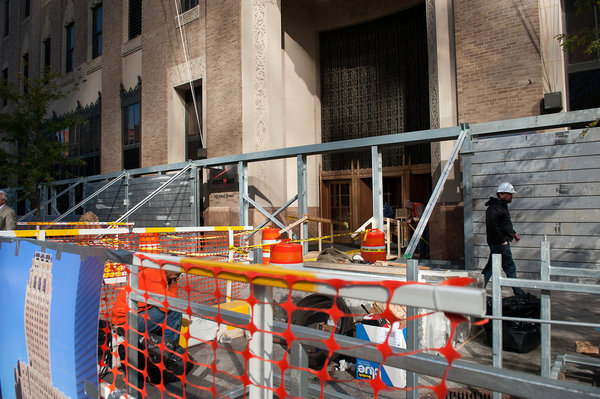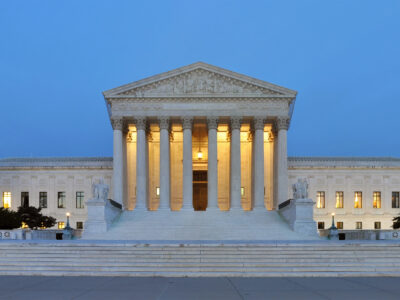Private Flood Protection
Private flood control is no substitute for government action.

Last week, the NY Times had a story about Verizon’s new flood barrier for its Wall Street building, which is a designated landmark. On one level, it’s a pretty cool project — a portable barrier designed to keep out the water during a hundred-year storm (plus 2-feet for storm surge plus an extra foot to account for climate change.) I really hate it when someone comes in to carp when something apparently constructive and smart happens. In this case, however, a bit of carping is in order.
The first problem is something that’s familiar from the history of flood control. In California, flood control started out as a private activity. The trouble is that the flood waters end up going someplace else, so there’s a kind of “flood thy neighbor” competition. That’s one of the main reasons that government ultimately stepped in. The same thing is true here. By the way, the main opponents of government action were the Democrats, who at least in California took a pretty “tea party” view of government in the 19th Century. Anyway, the same problem comes up with the Verizon barrier — who else is going to get flooded because the flood has been diverted?
The second question is about the “100 yr. + surge +1” standard used to design the barrier. Adding the extra foot for climate change is far-sighted (although depending on several factors, a foot might not be enough.) But the real question is about the 100-year standard plus two feet for surge. That’s a very conventional figure for flood control. But I really wonder, if you take into account the costs of flooding the building, which is a very important communications hub, whether a 1% per year risk level is good enough. Did they really do a cost-benefit analysis, or are they just aiming for that level because it’s conventional?
I do actually think it was probably wise for the company to build the barrier. But it’s no substitute for public programs to deal with the flood issue.
Reader Comments
2 Replies to “Private Flood Protection”
Comments are closed.







I have always wondered why the lower Miss. states don’t sue the upper Miss. states with regards to flooding issues. All the agriculture/cities that push all their water toward the Mississippi, which causes the flooding in the lower states. Any particular reason why this hasn’t been brought up?